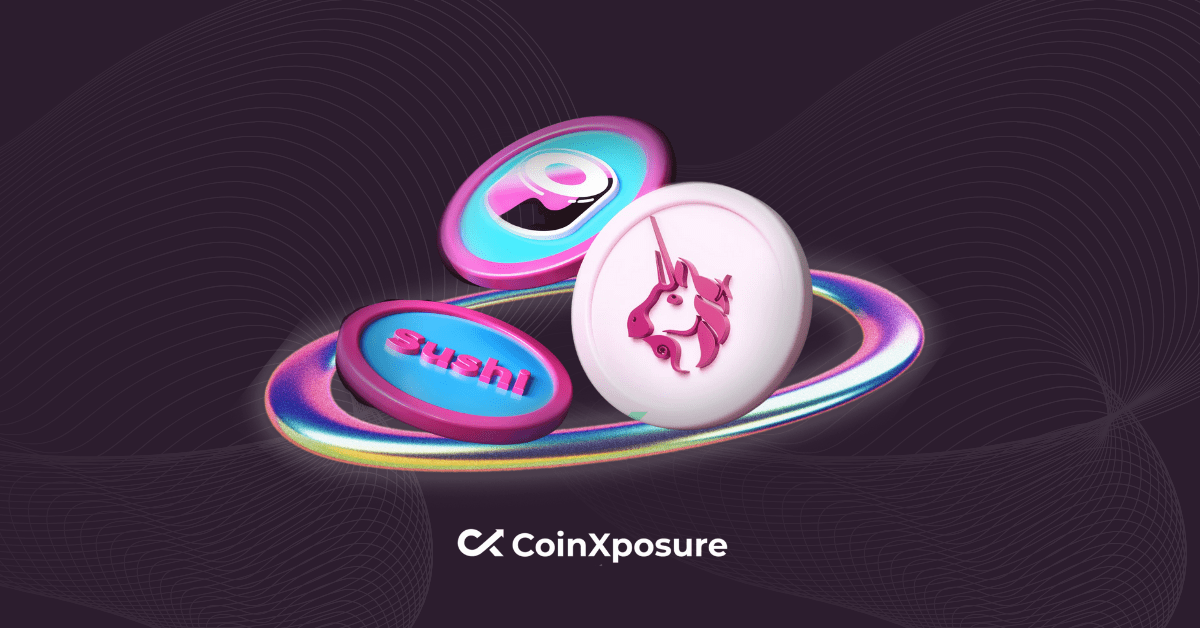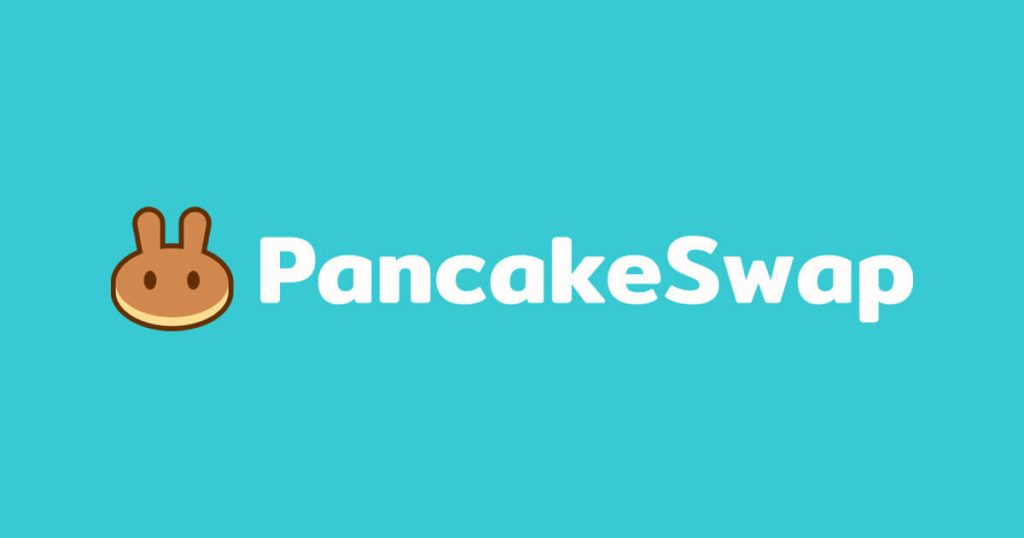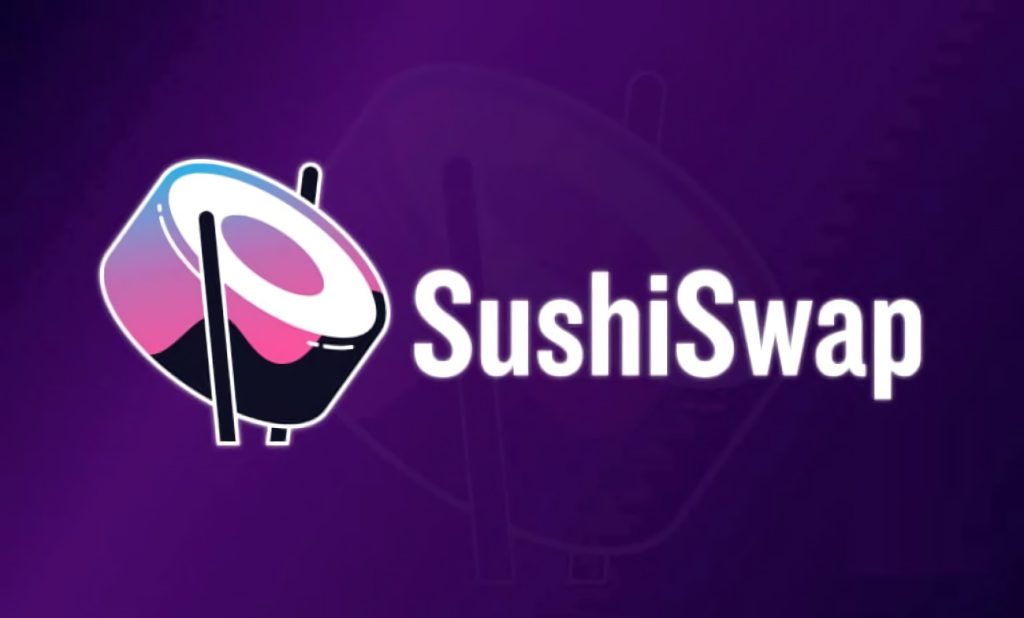
Uniswap
Decentralized exchanges have gained significant attention in the world of cryptocurrencies and blockchain. This article provides a comparative analysis of top DEXs.
The era of exclusive centralized cryptocurrency trading platforms has given way to the increasing popularity of decentralized exchanges (DEX).
Recent research shows decentralized exchanges (DEX) are rapidly altering the Crypto trading scene. DEX trade volumes surged by over 150% last year, with a total trading volume exceeding $1.5 trillion.
This increase in DEX use is emphasized by the fact that more than half of all decentralized exchanges currently use smart contracts, improving transparency and security for cryptocurrency firms and investors.
If you want to buy, sell, and trade cryptocurrencies on a decentralized exchange, read on.
What are Decentralized Exchanges?
A DEX, or Decentralized Exchange, is a cryptocurrency exchange that does not require an intermediary or centralized authority.
It enables users to exchange cryptocurrencies directly with one another, generally via smart contracts on blockchain networks.
Top DEXs provide better security and transparency because they do not keep users’ cash, lowering the danger of hacking. They allow users to retain control of their private keys and assets, supporting self-custody.
Decentralized exchanges have effectively replaced traditional trading techniques. They’ve replaced traditional order books with liquidity pools, and Automated Market Makers (AMMs) connect Crypto buyers and sellers based on trading volume.
Using DEX platforms has resulted in better token price optimization, lower swap costs, less slippage, and increased access to cryptocurrency trading.
A Comparative Analysis of Top DEXs
Here is a detailed comparative analysis of the top DEXs’ unique features.
Uniswap

Uniswap was founded and registered in 2018 in New York, United States, and is one of the top DEXs by trading volume.
The exchange uses the Ethereum blockchain network to facilitate trades, and ERC-20 tokens serve as a liquidity facilitator without a central controller.
It executes trades using smart contracts, the same as PancakeSwap does. Users of Uniswap supply liquidity and vote on the exchange’s trading regulations.
Uniswap lets users connect their Ethereum wallets to the interface and start trading digital tokens. The separation of clients’ funds from Uniswap is widespread among investors who value privacy and security.
Unique Features of Uniswap
As one of the top DEXs, Uniswap has some unique features that make it stand out.
- Decentralization: Uniswap is built on Ethereum blockchain technology. Thus, there needs to be a central management to meddle with or regulate operations. Users are more confident in their privacy.
- No asset custody: Uniswap does not store users’ assets. A customer just links his cryptocurrency wallet to the system and starts trading. As a result, the user is not concerned about asset theft or other potential financial crimes.
- Decentralized governance: Uniswap is managed by exchange users and does not have a centralized structure to supervise operations. This lets users easily make a sale or purchase through a liquidity pool.
- Governance Token: Uniswap is generally managed by voters, as its native token owners, UNI, own it. It seeks to ensure users’ privacy, security, and trading efficiency.
- Transaction fees: These are the remuneration a buyer pays to an asset provider for locking up his assets in the pool and receiving incentives. The transaction charge is low enough to provide plentiful liquidity and prices that reflect the market environment.
Pros of Uniswap
Some of the benefits that Uniswap provides its customers that make it stand out as one of the top DEXs include:
- Open system: Uniswap is a public system where users can sell or purchase cryptocurrency by linking their digital wallets to the exchange and trading. The exchange does not hold investors’ assets so that customers can retain their cryptocurrency in their wallets.
- Yield farming: Investors can add liquidity to an investment pool by locking up their assets and earning native cryptocurrency – “UNI” as passive income.
- Low fees: Other cryptocurrency deposits primarily cover a 0.3% cost on trades. Uniswap’s trading expenses make it a popular choice for investors.
- A diverse range of cryptocurrencies: Investors can use several cryptocurrencies for transactions and financing.
- Smart contracts: They are a secure and transparent execution program that enables trades and investing systems to run more efficiently.
- Governance: Holders of UNI, a governance token, can vote on how trading platforms operate. It allows the exchange to be transparent and democratic.
Cons of Uniswap
Despite the unique benefits of Uniswap as one of the top DEXs, it still has several drawbacks, some of which are:
- Limitation of the Ethereum network: Only Ethereum-compatible cryptocurrencies can be traded on Uniswap. It inhibits its ability to attract other system users.
- Fee payment limitation: Investors must pay a transaction charge in Ether. Investors may be hesitant to acquire or sell digital assets in Uniswap due to the volatility of Crypto pricing.
- High energy exhaustion: Uniswap mines cryptocurrency using the proof-of-work method, which requires more energy and resources than other environmentally friendly mining methods.
- Self-help investment style: Investors should connect their digital wallets to Uniswap’s no-custody dealing mechanism. It increases the workload of traders and investors while complicating trading operations.
- Liquidity risk: Investors may struggle to trade a rare currency if liquidity is scarce in the pool and a central authority does not respond quickly.
PancakeSwap

The next on our list of top DEXS is PancakeSwap. PancakeSwap is a decentralized crypto exchange where investors can trade cryptocurrency.
The exchange, founded in Fukuoka, Japan, in 2020, is the market’s second-largest. It offers automated market maker (AMM) services, governance, yield-farming, staking, and lottery pools to investors.
PancakeSwap increases market liquidity using the BNB Smart Chain (BSC) and BEN-20 coins rather than Ethereum.
The exchange’s goal is to facilitate cryptocurrency exchanges without the need for intermediaries or central supervision.
Unique Features of PancakeSwap
Some of the unique features of PancakeSwap that make it one of the top DEXs on our list are:
- BNB Smart Chain and BEP-20: Unlike other centralized exchanges, PancakeSwap uses the BNB Smart Chain (previously Binance Smart Chain) and BEP-20 as LP tokens.
- Automatic market maker(AMM): AMM is an autonomous market mechanism that makes crypto trades more marketable without central intervention and order books. A liquidity pool exists through contributions from investors to allow investors to trade more efficiently besides AMM.
- Yield farming: PancakeSwap offers investors rewards like interest, governance tokens, or others by locking up their cryptocurrencies in a liquidity pool. A liquidity pool aims to provide liquidity to asset trades and investments. A large pool means more investors participate in yield farming activities.
- Liquidity mining: Like yield farming, liquidity mining provides liquidity to exchanges or liquidity pools, but the return differs. The rewards earned can be in cryptocurrencies besides governance tokens.
- Lottery pools: PancakeSweep funds a lottery pool, allowing investors to win its native “CAKE” tokens.
Pros of PancakeSwap
Here are some advantages of PancakeSwap that make it stand out as one of the top DEXs:
- Decentralized investing: PancakeSwap, as a decentralized exchange, lets users trade and invest with less regulations and surveillance than centralized exchanges. Investors have greater control over their investments. Decentralization is one of the primary reasons investors choose to utilize the exchange for privacy and individualized trading.
- Low fees: PancakeSwap, like other decentralized exchanges, charges 0.25% for all transactions. Its minimal fee structure has made it a popular investment destination among investors.
- Large token selection: PancakeSwap employs BEP-20, an advanced-technology token, to provide trading flexibility across crypto networks. The exchange offers a vast selection of cryptocurrencies for trades on its site, making it an attractive crypto hub.
- Yield farming: The exchange pays investors that contribute to its liquidity pools with its currency, “CAKE,” which enhances currency flow and minimizes volatility in its investment pools.
Cons of PancakeSwap
Despite the benefits of PancakeSwap as one of the top DEXs, let’s consider the cons that are also associated with this exchange:
- Security: Due to hacks, investors risk losing their holdings and personal information. Also, a client may lose funds in an account due to negligent passkey loss.
- Lack of liquidity: Unlike Bitcoin and Ether, certain lesser-known cryptocurrencies are less liquid. Investors may face the issue of a speedy sale or be forced to cut the offer price to sell quickly.
- Temporary loss: If you deposit and lock up your assets in a liquidity pool for an extended time, you risk losing paper value because you won’t be able to sell them if their price declines.
Sushiwap

Sushiswap is also one of the top DEXs to be analyzed in this article. SushiSwap was founded in Tokyo, Japan, in 2020 as a decentralized exchange for trading a wide range of cryptocurrencies.
SushiSwap operates on the Ethereum blockchain. Like the other two exchanges, it is an autonomous market maker without central control or supervision.
Like UniSwap, ERC-20 is a token standard for SushiSwap’s operating system, which supports a wide range of cryptocurrencies on its network.
Also, “xSushi” – the exchange’s native currency – provides liquidity and voting rights to users.
SushiSwap facilitates yield farming, liquidity mining, trading, and other financial transactions.
Unique features of Sushiswap
Some of the unique features of Sushiswap that make it among our list of top DEXs are:
- Market maker: SushiSwap, like other decentralized exchanges, is an automatic market maker that relies on a liquidity pool rather than order books to enable trading activity. The usage of a liquidity pool ensures user privacy.
- Governance: Holders of “xSushi” money can vote on the exchange’s rules and regulations. Users have the democratic right to participate in administration, which enhances their sense of belonging.
- Liquidity mining: Investors can contribute to a liquidity pool and receive “xSushi” as compensation. The liquidity pool employs investors’ locked-up assets to boost pool flows and reflect marketability.
- Yield farming: This service allows users to earn incentives in addition to “xSushi.” Investors can earn interest in cryptocurrencies in exchange for contributing to a liquidity pool.
Pros of Sushiswap
As one of the top DEXs in the crypto space, Sushiswap has the following advantages:
- Privacy and control: SushiSwap leverages liquidity pools to improve cryptocurrency flows, allowing users to stay up-to-date on the market and conduct more efficient sales or purchases. The automatic market maker system protects party identities rather than order books.
- Community-driven project: The decentralized exchange is a community-driven project with an open voting mechanism that allows users holding “xSUSHI” cryptocurrency to select how the exchange operates collaboratively. In other words, users can take part in the company’s operations.
- Low fees: SushiSwap, like other decentralized exchanges, charges a transaction fee of as little as 0.3% on all trades due to its decentralized management structure, making it a popular choice among investors.
- Incentives: SushiSwap offers popular incentive systems such as yield farming and liquidity mining to earn cryptocurrency and increase pool liquidity.
Cons of Sushiswap
Sushiswap, as one of the top DEXs, has some disadvantages, which include:
- Loss in Value: Investors may suffer a paper loss if they lock up their assets in a liquidity pool. Whether the locked-up assets go north or south, they cannot be sold for a profit or loss reduction for a specified time.
- Complex System: SushiSwap’s system is more sophisticated than that of PancakeSwap and UniSwap. Novice users may take longer to learn how to utilize and trade on the platform.
- Limited Currency Choice: SushiSwap offers less than 50 coins for investing. When trading on the exchange, investors should have limited discretion.
Having seen the top DEXs, let’s quickly see some factors to consider when selecting a decentralized exchange.
Factors to Be Considered When Choosing a Decentralized Exchange
The following are the major considerations when choosing a decentralized exchange:
- Features
- User-friendly system
- Fees
- Security
Features
Decentralized exchanges offer margin trading, lending, staking, and liquidity mining services.
Individual institution offerings vary in terms of interest rates. Investors should research and compare options before making a decision.
User-friendly System
Users may save time while making a transaction on a user-friendly interface rather than a sophisticated system with a high learning curve.
A beginner may want an easy-to-use tool, but an investor should rely on his knowledge when choosing a decentralized exchange.
Fees
Cost is a common consideration in investing. The bigger the cost, the lower the return. In a volatile cryptocurrency world, fees are critical when investing.
Security
Avoid investing in exchanges known for frequent cyberattacks, fraud, and data theft.
Quality aspects should precede other quantity considerations, such as return, because the former may result in a more significant loss than the latter.
Final Thoughts
All three top DEXs mentioned above — Uniswap, SushiSwap, and PancakeSwap — have substantially contributed to the DeFi space by offering a more decentralized and efficient cryptocurrency trading method.
Each platform has its distinct features and benefits that set it apart from the others.
Ultimately, the choice of platform will be determined by each trader’s demands and preferences.
As the DeFi market evolves, it will be interesting to observe how these platforms innovate and differentiate themselves from one another.





